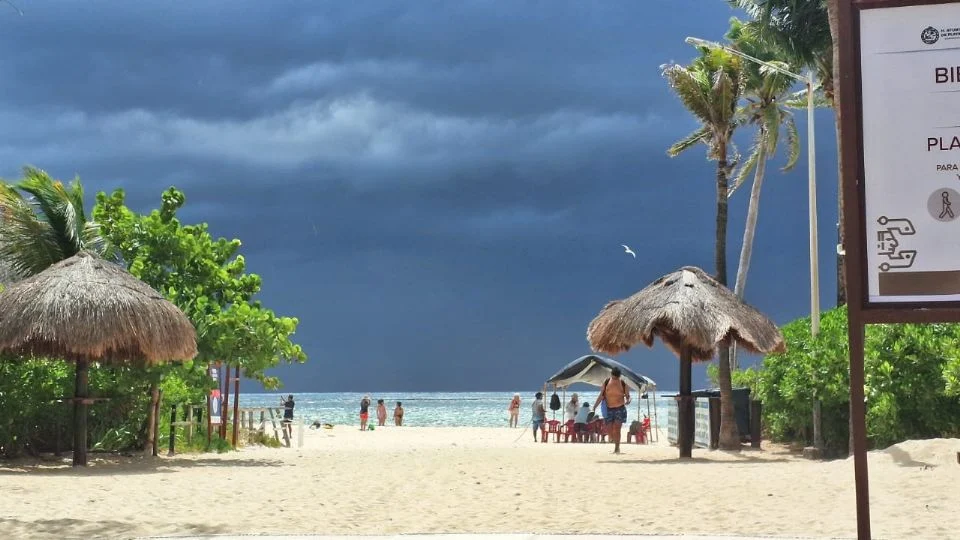Playa del Carmen, Mexico — The Cooperativa Del Mar Caribe, which groups together fishermen and tourist service providers along the coast of Playa del Carmen, is facing a near-total paralysis of its vessels and tour cancellations due to the massive arrival of sargassum during the vacation season and the consequent beach erosion, according to José Gómez Burgos, the cooperative's secretary.
Burgos reported that both tourist and fishing activities were affected starting from the second week of the Easter holiday period by the continuous arrival of sargassum, which "gradually increased every fortnight or every subsequent month" and damaged the coastal strip.
"The beaches were very badly hurt, almost all of them in the city," he said, explaining that the sargassum prevents the sea from "doing its daily work" of arranging and cleaning the sand, which worsens erosion processes.
The reduction in demand was immediate. From an estimated fleet of some 50 vessels in the area, barely five continue to operate with fishing, snorkeling, and diving tours. "Today almost the entire fleet is stopped; during this sargassum period we have about 5 out right now, from the whole area, out of about 50 here," he specified.
Cancellations and changes to visitor itineraries resulted in diversions to archaeological sites and cenotes—Chichén Itzá, Tulum, and Cobá were mentioned—where visitors seek alternatives with a guarantee of good service.
Despite this, Burgos indicated that conditions have shown improvement in the last week: "the hotel zone has crystal clear water now, and on this side too, from the pier onward, the water is also very beautiful. And the reefs, well, they are very clear, very nice."
Based on this recovery, the cooperative is confident that some tourist demand could return and contract nautical services.
Productively, fishermen hope that the fishing of species such as chachí, snapper, sierra, liceta, and macabí will reactivate in the coming days. Regarding the macabí—caught in large volumes—Burgos explained that part is destined for the local market for being "cheap and of good quality," and another part is processed for export.
"That is sent to Progreso for preparation and then shipped to the United States or Canada," he said, explaining that this product is used for flour, pet food, or industrial preparations; its current price, already semi-processed, is around 180 to 200 pesos per kilo.
The cooperative also faces administrative procedures and limitations. Burgos recounted a recent inspection ordered by the Mexican Navy: "all vessels, with or without a permit, would have to report and undergo inspection."
Regarding fishing permits, he warned that many historical documents come from procedures dating back to 1999 and that the renewal and issuance of permits has been limited: "those who have had them since '99… several have already passed away. So those permits are no longer being processed."
The cooperative is in the process of replacing paperwork and hopes for a hearing with the commissioner to try to resolve the situation.
Internally, fishermen took advantage of the lull to perform maintenance on their boats and equipment, although Burgos said that this season many prefer to wait for better conditions before repairing vessels.
The cooperative's forecast is that around the last week of September greater fishing activity will begin to be seen, and that towards the end of the year, with the high season, there will be a greater recovery in occupancy and demand for nautical services.
"The fisherman cannot think that things will go badly for us; we are always thinking that things will go very well," concluded Burgos, amidst the uncertainty over permits and the hope placed in the improvement of the sea and the arrival of tourists.
Discover more from Riviera Maya News & Events
Subscribe to get the latest posts sent to your email.
